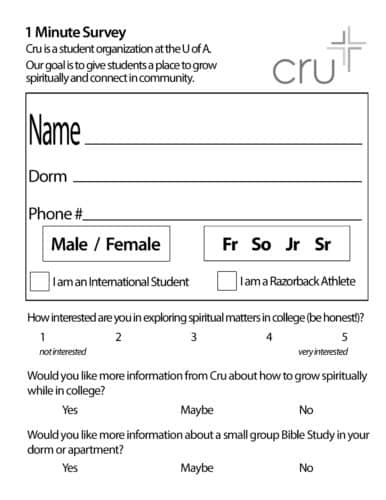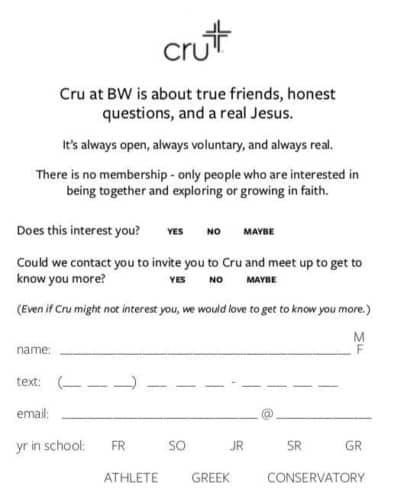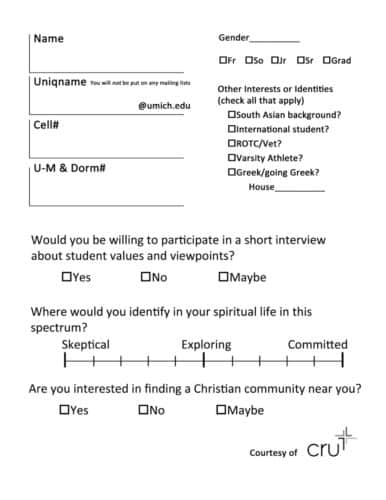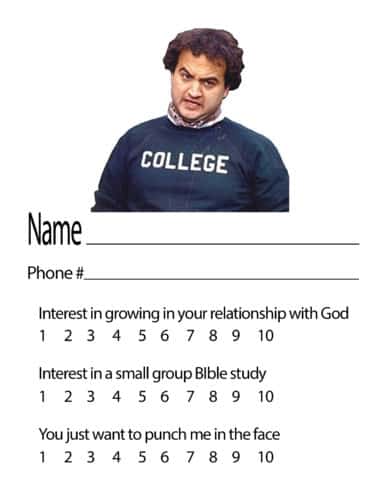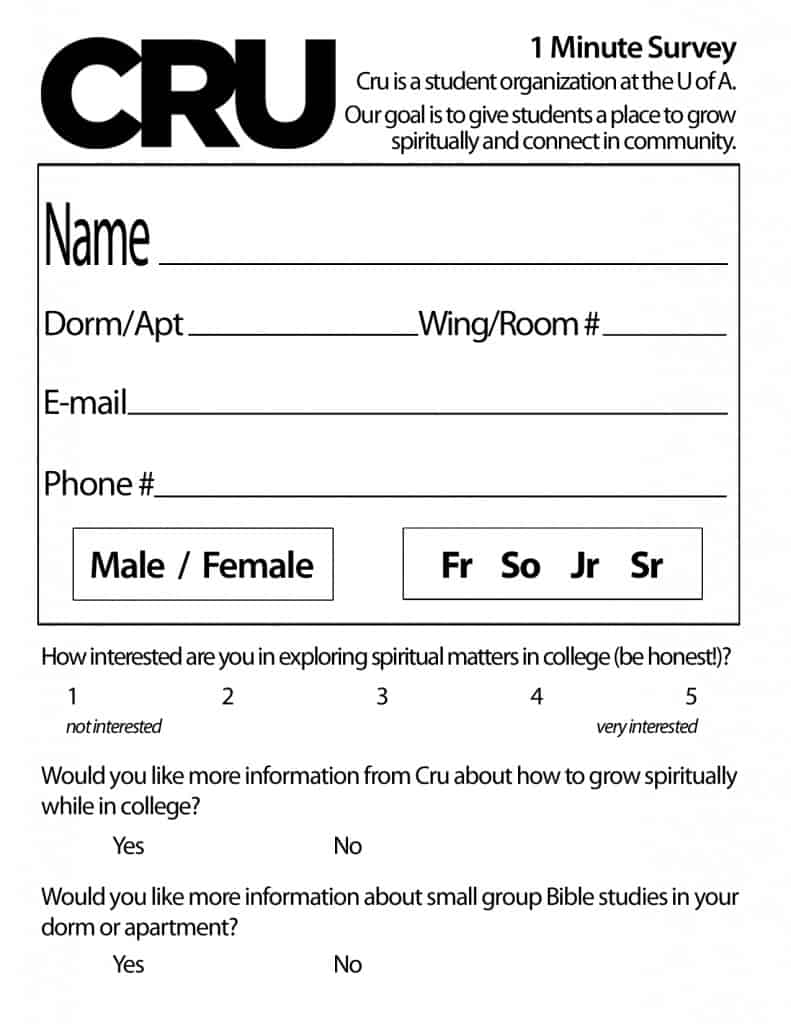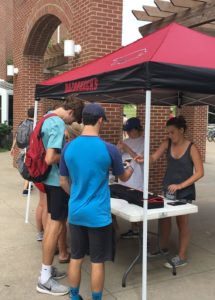 When it comes to the fall in college ministry, as Paul Worcester has said – It’s All About the Contacts!
When it comes to the fall in college ministry, as Paul Worcester has said – It’s All About the Contacts!
Because of that, a lot of thought and time has gone into crafting a perfect spiritual interest survey: how to throw the net broadly but not so broadly so as to become useless.
We aim to survey about 3,000 students in the first two days of school.
The problem we run into, with our team of 4 staff and several dozen student leaders= we can’t get to all 3,000 contacts immediately.
A good survey can go a long way to helping you filter through thousands of contacts and find the students who are most spiritually interested.
For our campus – we are aiming to follow up with spiritually interested non-Christians. On a campus in the buckle of the Bible belt, that can be a bit of a challenge.
Here’s our card (here’s the photoshop-editable pdf file so you can edit it and make it your own; after you download it, right click and select “open with Photoshop”):
We will text all students who indicated interest (a ‘maybe’ or ‘yes’ on their card).
But we want to get face to face with all 3-‘maybes’. Why? Because those are typically spiritually interested non-Christians. We took off “Maybe” for years. But recently put it back on to try to hit that spiritually-indecisive-but-curious student.
A couple years ago we ditched “email” and “dorm address” – both came across creepy. And we never email anyway.
At Cleveland Cru, Brian Metzer and his team recently changed their survey:
We simplified our survey a lot. We wanted to be less “survey-y,” more “we’d like to get to know you,” more positive filtering, less transactional, and tell us less so we went in with fewer preconceived ideas on the first appt.
Did you see an increase in the number of follow up appts?
About the same, and maybe even a little less. But qualitatively better. The non-believers we met with were more open. It felt less like we were tricking people into an appt. and we could genuinely get to know them. This also meant that we felt more likelihood of connecting again so less pressure to push ahead through the gospel on the first (and only) appt.
I think our goal shifted too. In our metro context [city-wide; focused on multiple campuses] we needed to surface not just people to meet with but hungry people to meet with. This has helped.
Cleveland Cru’s Survey:
At Michigan Cru, they’ve made some contextualized adaptations to their survey:
This is our card for Fraternity Pledge talks:
Katie Smith (Cru Team Leader in Eastern Iowa) on one change they’re making this year:
We are adding a place for their Snapchat username (student leaders said students are more quick to give that out & to respond that way for follow up – it’ll be the first time trying it, so we’ll see how it works!)
On a similar topic- on the Collegiate Collective discussion on Facebook (highly recommend joining that group, btw), someone asked what methods of communication students prefer. In these college ministers’s (very reputable) opinions:
- not email
- text is still king for reaching new people
- snapchat and instagram for ministry-wide communication
- groupme for internal communication with leaders
We have found all of that to be true on our campus.
The main idea from all these surveys:
- Tailor your survey for the
- audience you are trying to reach. Is it predominantly secular? Bible belt?
- how many people you want to meet with. Do you want a really tight filter because you don’t have the capacity to follow up that many people (you just want to meet face to face with the “fish ready to jump in the boat”?) Or do you want a really broad filter that will leave the door open for you to contact as many people as possible?
Would love to see what surveys your team uses – link to them in the comments!
